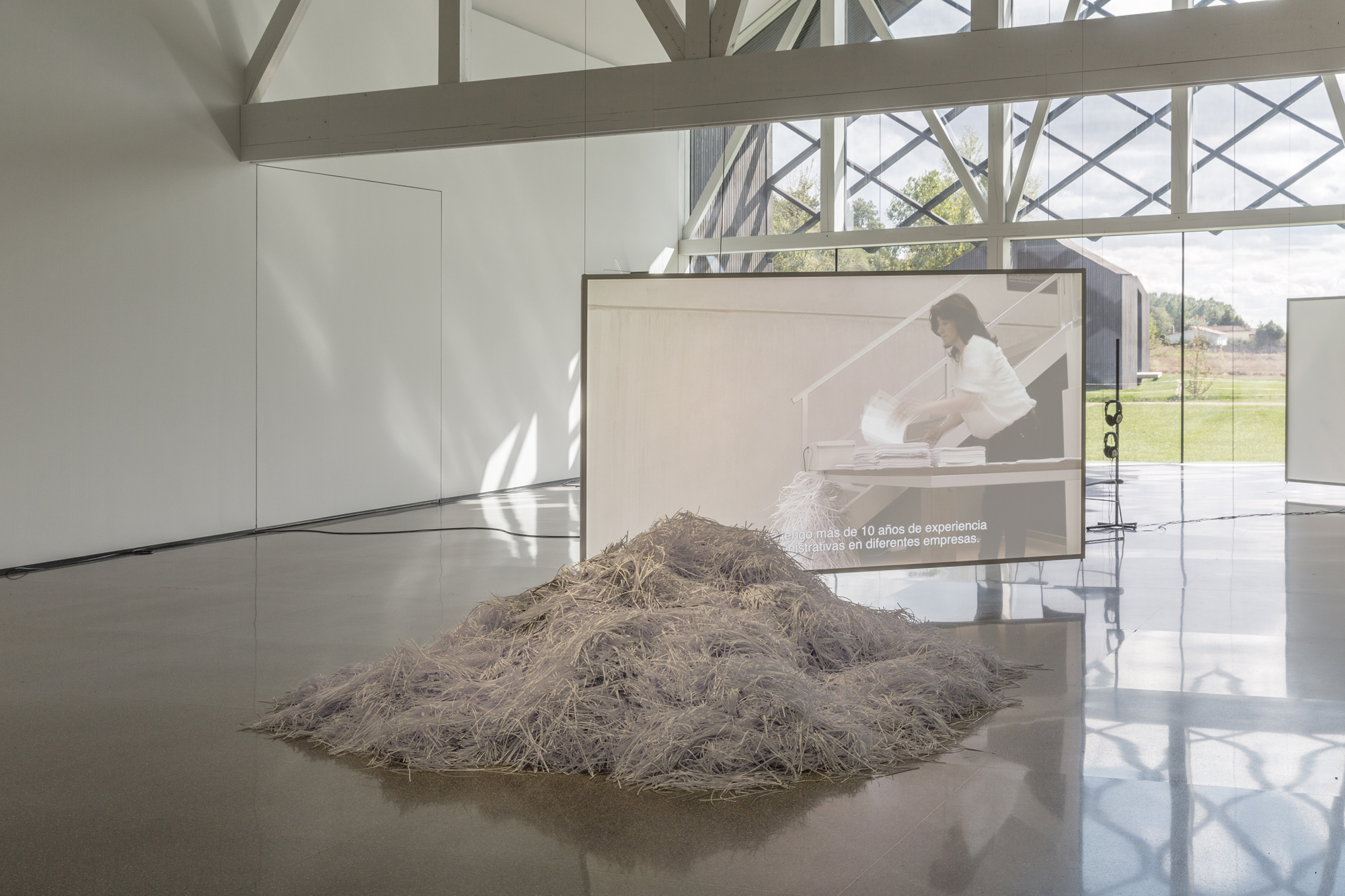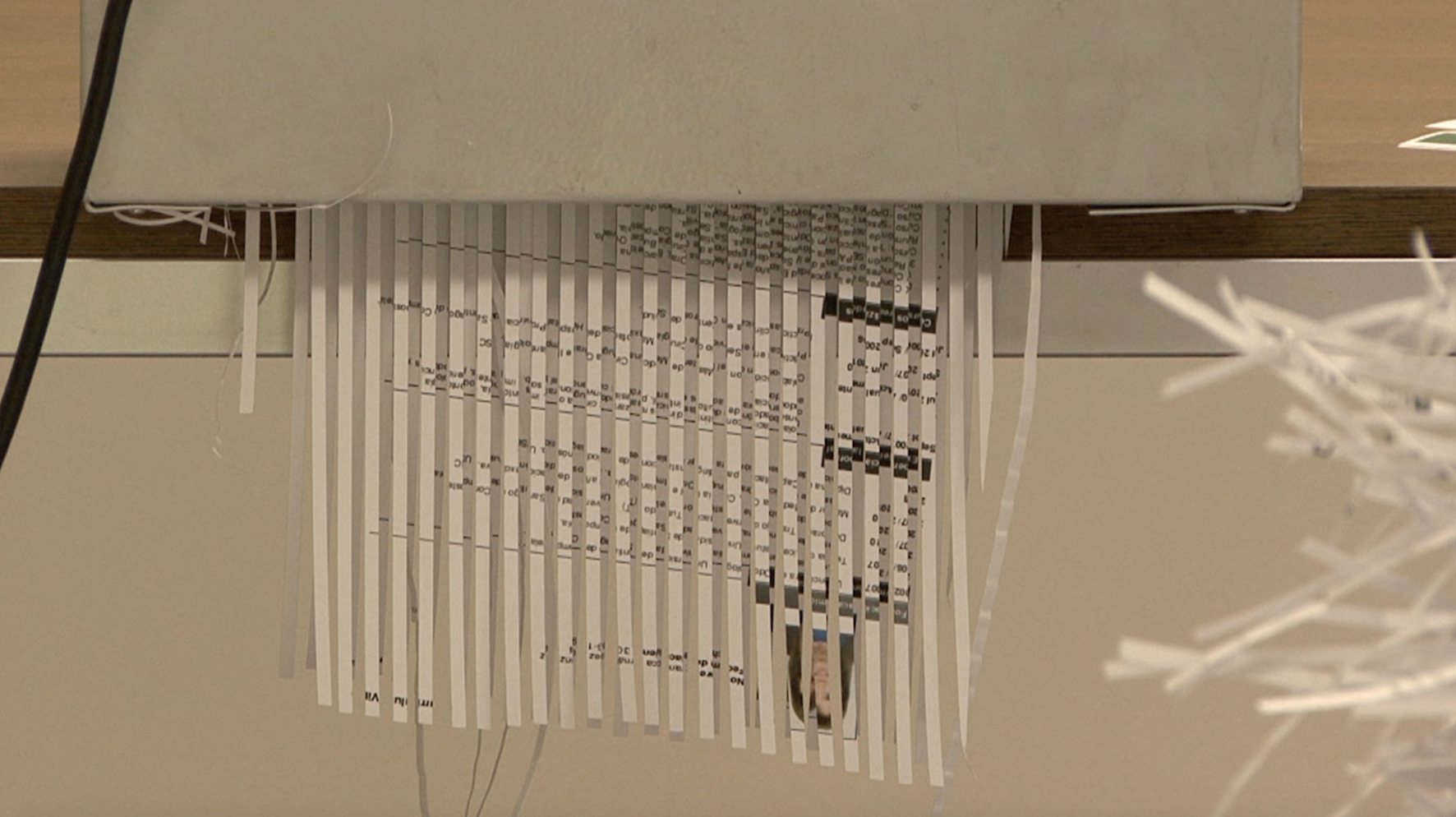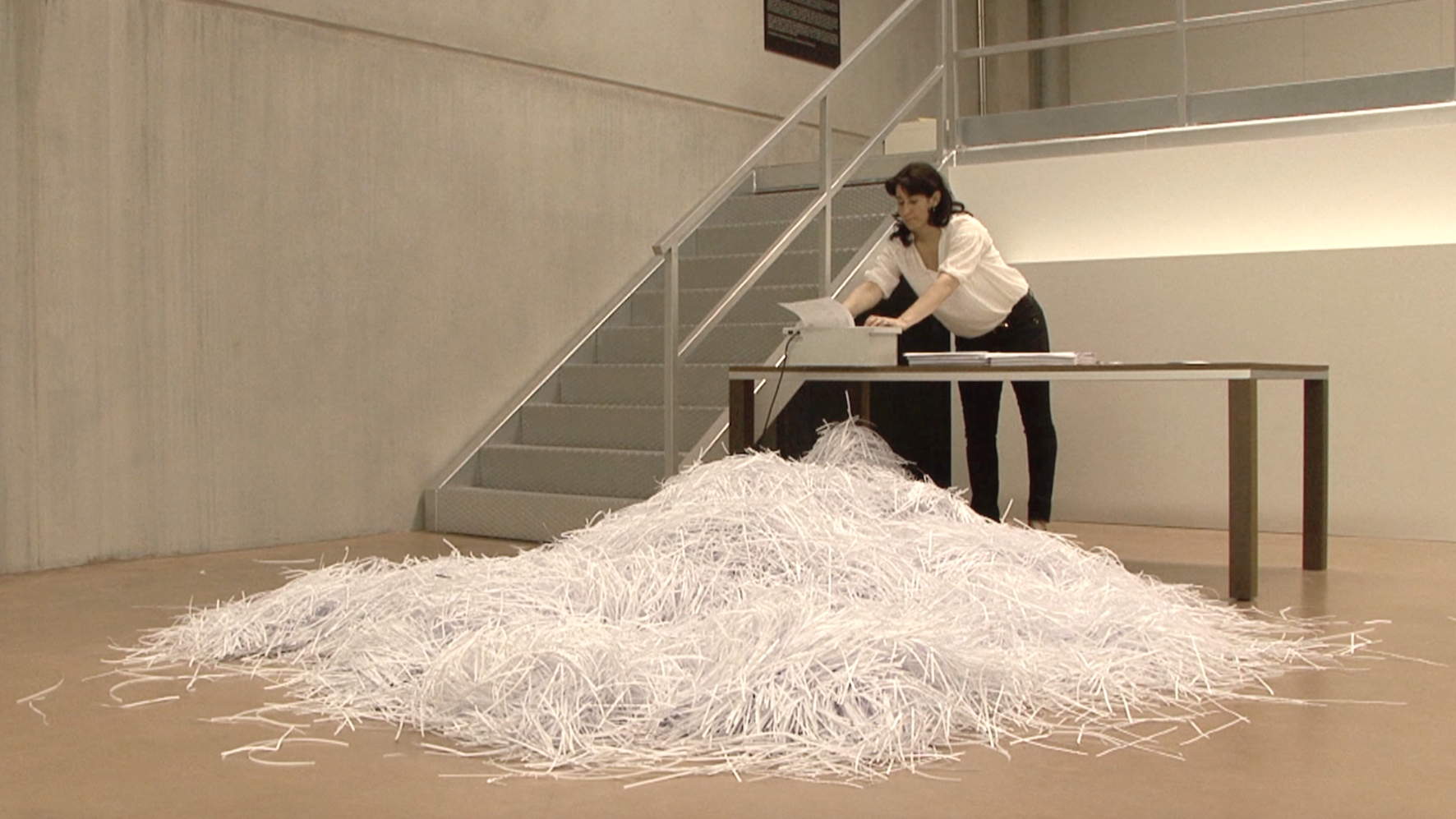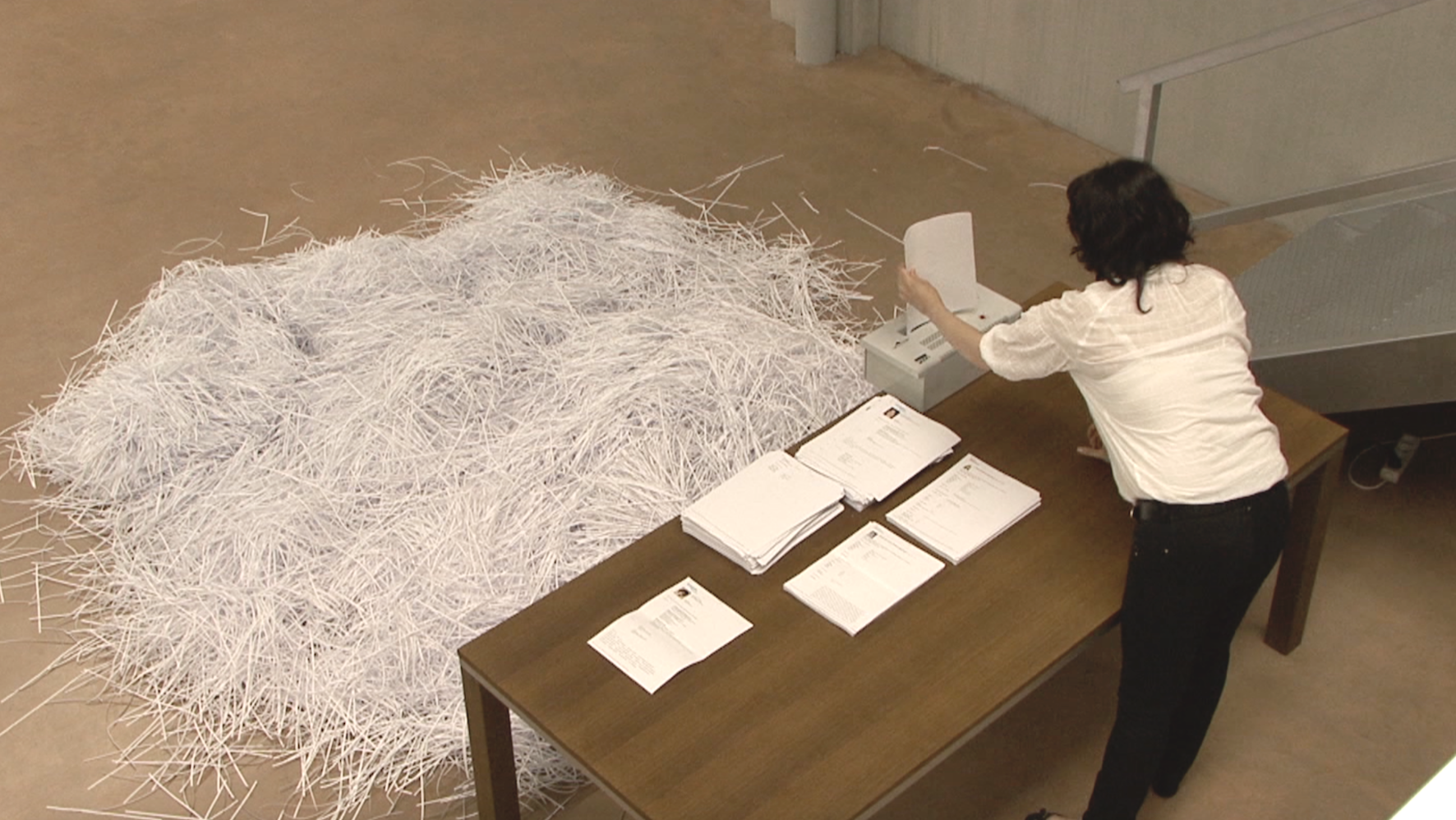. Produced in Barcelona and Amsterdam. Supported by Adn Platform Barcelona, Spain and Steirischer Herbst festival Graz, Austria
(2014)
Video installation
HD h.264, colour, stereo, 10:00 min
‘Surplus Production Line’ explores the shifting politics of labour within the framework of neoliberalism, in which employees and jobseekers are forced into harsh competition with each other and alienating them from their personal feelings. Melis started a private company in Amsterdam, where he is based, in order to publish (on the Internet and through other media) a call-out for a temporary job welcoming native Spanish speakers to apply for the role by sending in their CVs. The successful individual was required to work for two hours per day, five days a week (from August 6 to September 6 2014), in order to print and destroy by means of a shredder all of the CVs gathered through the call. The final outcome of the mass of shredded CVs would be presented in the exhibition space. By doing so, Melis initiated a production process based on destruction, one that mobilised the expectations of the unemployed who had applied for the job (and whom he never met) and transformed them into raw material for the company to shred.
As an ironic comment on liberal economist, Joseph Schumpeter concept’s of creative destruction (capitalism generates new wealth by destroying existing economic and social structures), reveals labour and work to be annihilating enterprises under their current, neoliberal guise. Moreover, in ‘Surplus Production Line’ Melis pointed to the radical differences between the systems of work in his native country, Cuba, and the European context, showing how in the latter, workers and employees involved in low paid, de-skilled jobs are forced to increasingly suppress their own emotions rather than being allowed to include them in their daily work processes.
text by curator Luigi Fassi.
As an ironic comment on liberal economist, Joseph Schumpeter concept’s of creative destruction (capitalism generates new wealth by destroying existing economic and social structures), reveals labour and work to be annihilating enterprises under their current, neoliberal guise. Moreover, in ‘Surplus Production Line’ Melis pointed to the radical differences between the systems of work in his native country, Cuba, and the European context, showing how in the latter, workers and employees involved in low paid, de-skilled jobs are forced to increasingly suppress their own emotions rather than being allowed to include them in their daily work processes.
text by curator Luigi Fassi.
Photo Credits: Juan Barajas -
© Fundación Cerezales Antonino y Cinia, 2018



